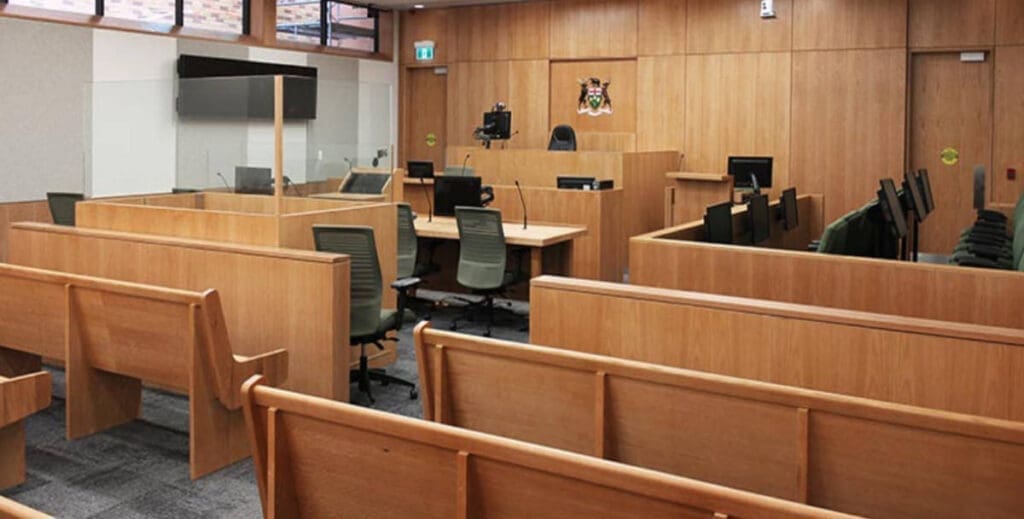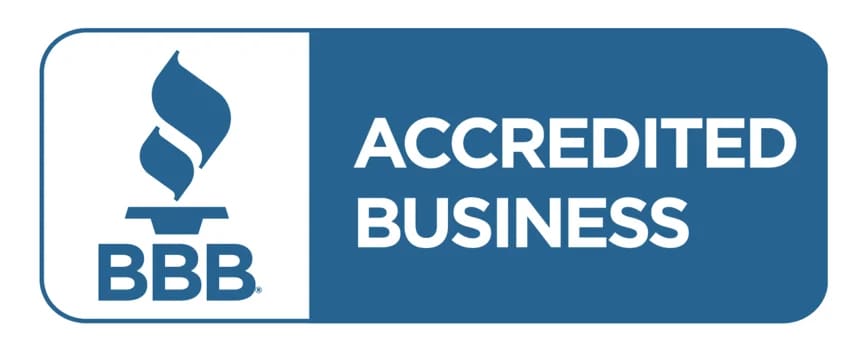DUI Lawyers | Impaired Driving Lawyers
DUI Lawyers | Fighting Impaired Driving
As DUI lawyers, we understand how serious an impaired driving charge can be. One charge can change your life fast. Drivers face heavy fines, a licence suspensions, higher insurance, a permanent criminal record, and even jail time.
These consequences can affect your job, your family, and your ability to drive in Ontario. At Charitsis Law, we bring over 25 years of real courtroom experience defending DUI and impaired driving charges throughout Ontario.
Our team of senior DUI lawyers have helped hundreds of with a proven track record of winning cases, we know what it takes to build a strong defence. We focus on protecting what matters most: your licence, your record, and your future.
Proven DUI Defence Experience
Every impaired driving case is different. That is why DUI defence is never one-size-fits-all. We review the evidence closely and look for the issues and technicalities that can help your case, such as:
- Police errors during the traffic stop or arrest
- Problems with breath tests or testing procedures
- Charter rights violations
- Weak or unreliable evidence
By finding these issues early, we often help clients avoid convictions and protect their driving record. This can be important for insurance, work, and travel.
When so much is at stake, experience matters.
Call 647-930-0200 to speak with Nicholas Charitsis, an experienced DUI lawyer. A short call can help you understand your options and the next steps, and acting early is one of the best ways to protect your future.
Impaired Driving Penalties & DUI Penalties
- A permanent criminal record
- A minimum $1,000 fine for a first offence
- An automatic driver’s licence suspension, often 12 months or longer
- Mandatory participation in an ignition interlock program
- Required education or treatment programs
- Major insurance increases that can last 5 years or more
- Possible jail time for second or subsequent offences
DUI penalties can become even more severe when there are aggravating factors, including:
- High blood alcohol concentration (BAC)
- Refusing to provide a breath sample
- Allegations involving bodily harm or death
These penalties do not stop when the court case ends. A conviction can affect your job, limit travel outside Canada, and damage your personal and professional reputation. Driving can also become far more expensive due to high-risk insurance.
If you have been charged, call today and lets discuss your case.
Understanding DUI & Impaired Driving Charges
DUI and impaired driving charges are criminal offences under the Criminal Code of Canada. Charges for dui’s apply when police believe “in their opinion” that a driver’s ability to drive is affected “impaired” by alcohol, drugs, or both.
You do not need to appear drunk or high, it’s based upon the police officer’s “opinion at the time of arrest”.
Common DUI & Impaired Driving Charges
Driving While Impaired: This charge applies when a person ability to drive is impaired by alcohol or drugs, care and control of a vehicle while impaired. The vehicle does not need to be moving. If you are in the driver’s seat and have access to the keys, police may still lay this charge if impairment is suspected.
Over 80 (BAC Over the Legal Limit): In DUI law this means the police had grounds to measure your blood alcohol level. When they did the drivers concentration of alcohol in their body was over .80 milligrams of alcohol. Not that the driver was impaired in any way, just that there is a limit, and the driver was over the limit.
Refusing or Failing to Provide a Sample: Where the police have the lawful authority to demand a breathalyzer test, the driver must comply. Where the driver refuses to provide a “proper sample” of their breath the driver can be charged with refusing a breathalyzer test or refusing a roadside test.
Impairment by Drugs or Cannabis: This charge applies when drugs affect your ability to drive. This includes illegal drugs, cannabis, and some prescription medications. Police may use roadside tests, drug recognition evaluations, or saliva testing to support these charges.
Facing a DUI or impaired driving charge can feel overwhelming. Understanding the specific charge is the first step toward protecting your licence and your future. With the right legal guidance, many drivers are able to challenge the evidence and defend themselves properly.
Don’t leave your future to chance. Contact our experienced DUI lawyers and impaired driving lawyers today at 647-930-0200 for a free consultation. Let us put our 25+ years of experience to work for you.
Why You Need a DUI Lawyer
At Charitsis Law, we have been defending people charged with DUI offences for over 25 years.
Our proven defence strategies have helped hundreds of drivers across Ontario, a track record reflected in the many positive Google reviews from our clients.
The most important step is to speak with a DUI lawyer as soon as possible and get a realistic assessment of your case, what happened, what the disclosure is saying and the legal defences that can help you win or reduce the charge. Before making decisions, before pleading guilty, and before assuming the worst, you need clear answers.
A proper legal review helps you understand what you are facing and what options you actually have.
Let’s Just Have a Conversation
When you sit down with an experienced lawyer, a lawyer with years of experience in impaired driving and DUI law the first goal is not pressure or promises.
The goal is clarity. Let’s review the details of your case, explain the dui charge in plain language, and walk you through facing and how we can help you.
Many drivers are surprised to learn that the police do not win every impaired driving case. Drinking and driving charges are some of the most complicated and litigated charges in Canada and the police are expected to do everything properly and legally. Experience counts not only with your lawyer, but with officers as well.
Identifying Issues in DUI Defence
Police procedures must be followed properly. Evidence must be reliable. Timing, testing, and Charter rights matter. Until a lawyer reviews your case, you do not know whether there are weaknesses that can be challenged.
A DUI lawyer does not have to prove you are innocent. The defence only needs to show a reasonable doubt. The police and prosecution must prove the case beyond a reasonable doubt. If they cannot, the charge must fail.
After we explain your situation, we show you how we can help. With over 25 years of courtroom experience, our team focuses on building strong defences and finding real solutions. In some cases, that means fighting for a full win. In others, it may involve reducing the charge or limiting the long-term damage.
You do not have to face this alone, and you do not need to guess your way through it. The right conversation at the right time can change the direction of your case. Call and let’s discuss your case.

Fighting DUI Charges
An experienced defence lawyer’s role is to bring the entire case together, including your version of what happened. Fighting DUI charges means reviewing the evidence, understanding police procedures, and identifying the issues that can reduce or dismiss the charge.
Listening to Your Side & Reviewing the Evidence
Fighting DUI charges starts by listening. Before relying on police reports alone, your lawyer needs to understand what you experienced before the stop, during the interaction with police, and after the arrest. Your version of the events leading to and including the arrest often reveals important details that are not clear from officer notes and can point to problems in the case.
At the same time, the police disclosure is carefully reviewed. This is the evidence the Crown relies on and often includes:
- Police notes and reports
- Breath or blood test results
- Calibration and maintenance records
- Video or audio recordings
These notes from the disclosure are examined for timing issues, testing errors, missing documentation, and inconsistencies. When we put your version and the police version of events we can start to build a case.
Not every DUI or impaired driving case goes to trial. With the right legal approach, a DUI and drinking and driving charge has been dropped to non-criminal offences, like careless driving thereby avoiding a licence suspension and criminal record.
Experience Matters in Pre-Trial Hearings
After disclosure has been reviewed, most impaired driving cases will move to a pre-trial hearing with the Crown Attorney.
This is one of the most important moments in defending a DUI charge. In many cases, the pre-trial hearing will decide the direction of the case and where experienced advocacy can lead to charges being reduced or withdrawn without a trial.
The pre-trial is about knowing which issues matter, how to present them, and when to press them. An experienced defence lawyer understands how impaired driving cases are evaluated by the Crown and how to clearly demonstrate why a case carries risk to the Crown Attorney if it proceeds.
At the pre-trial, an experienced lawyer will raise issues such as:
- Weaknesses in the prosecution’s evidence that affect proof beyond a reasonable doubt
- Errors in police procedures that undermine the reliability of the case
- Charter and rights violations that may justify excluding evidence
- Discuss reduced non-criminal charges
Experience also means understanding how local courts operate and how impaired driving cases are handled in practice. Familiarity with local Crown Attorneys, court expectations, and regional procedures helps focus the discussion on the issues that actually move cases forward. This local knowledge often plays a role in whether a case is resolved early or pushed toward trial.
Putting the Case Together – Building Your Defence
Where a DUI charge goes to trial this is where experience matters most. A skilled defence lawyer looks at the full picture, pulling together your account of events, the police conduct, the testing procedures, and the disclosure as a whole. From there, the strongest issues are identified and used to shape a defence strategy.
Depending on the case, this may involve:
- Strong advocacy & cross-examination of witness
- Bringing legal motions to challenge evidence
- Negotiating reduced, non-criminal charges
- Preparing for trial where necessary
In many cases, impaired driving charges are reduced to offences such as careless driving, helping drivers avoid a criminal record, lengthy licence suspensions, and long-term insurance consequences.
Focused on Protecting Your Licence and Your Future
Fighting DUI charges is not about guessing or hoping for the best. It is a structured legal process that involves listening, reviewing disclosure, challenging evidence, and using the pre-trial process effectively.
When handled properly, our approach to defending dui charges and impaired driving has helped hundreds of Ontario drivers and we can help you.
Even where the court and prosecution have done everything properly, many times there are legal motions that can dramatically affect a court case.
DUI Lawyers – Why Charitsis Law
In criminal defence and especially for DUI Lawyers, experience counts.
Who your lawyer is, their background, and their reputation with the court can play a meaningful role in how a criminal court case is approached and resolved. Judges, Crown Attorneys, and the court system as a whole recognize lawyers who are prepared, credible, and experienced in handling impaired driving cases.
Credibility in Criminal Law
An experienced defence lawyer understands not only the law, but how cases are actually assessed in court.
Years of appearing before the same courts, working with local Crown Attorneys, and arguing impaired driving cases builds professional credibility. That credibility helps ensure that legal issues are taken seriously, weaknesses are properly considered, and your case is evaluated fairly.
Our DUI and impaired driving defence lawyers bring decades of courtroom experience to every case.
We have handled hundreds of impaired driving matters across Ontario, giving us a deep understanding of how these cases are prosecuted, what issues matter most, and how to raise them effectively.
Experienced Guidance at Every Stage of Your Defence
An experienced defence team is not just there for trial.
We act as your resource at every stage of the case, helping you understand what is happening and why it matters. This includes identifying legal challenges, explaining your options clearly, and making sure you are never left guessing about your situation.
As your DUI Lawyer we focus on:
- Identifying legal issues and weaknesses in the case early
- Explaining potential defences and realistic outcomes in plain language
- Guiding you through the criminal court process step by step
Criminal defence is not something you should navigate alone. Having experienced counsel beside you brings clarity, structure, and confidence at every stage.
What Our Representation Covers
Our defence work is comprehensive and hands-on.
We manage every aspect of your case so nothing is missed and no opportunity is overlooked. This includes:
- Providing ongoing legal advice as your case progresses
- Securing and reviewing full disclosure, including police notes and evidence
- Attending court on your behalf whenever possible
- Communicating directly with the Crown Attorney and attending pre-trial hearings
- Preparing and presenting legal arguments based on the facts of your case
- Representing you at trial if your matter proceeds that far
In many cases, our involvement means you may not need to attend every court appearance. When your presence is required, we make sure you are fully prepared and supported.
Trusted DUI Defence Built on Experience
Winning DUI cases requires more than knowing the law. It takes real courtroom experience, proven judgment, and the ability to identify the issues that actually change outcomes. At Charitsis Law, our DUI lawyers understand how to navigate the Crown Attorney and court system, how and when to raise legal challenges, which arguments carry weight, and how courts respond in impaired driving cases.
That experience is built through decades of defending DUI and impaired driving charges across Ontario. It allows us to protect our clients’ rights, expose weaknesses in the prosecution’s case, and pursue results that matter — including reduced charges, winning cases, and avoided convictions.
As a DUI defence team, Charitsis Law provides steady, experienced defence with hundreds of winning reviews from verifiable criminal cases. Our focus is always the same: clear advice, strong advocacy, and the best possible outcome for your case.
★★★★★ I’m extremely satisfied with the results and service provided. My impaired charge was dropped after trial in March. Nick was always professional and to the point. I’m glad I selected him as my lawyer and now consider him like family. Aristotle N. (Google Reviews)
Give me a Call Today

If you’ve been charged with a DUI or impaired driving, the first step is speaking with an experienced impaired driving lawyer.
You probably have a lot of questions. What you’re facing, whether the charge can be fought, and how the court process really works. With over 25 years of courtroom experience, I can explain your options and your questions in plain language.
Even if you are unsure about hiring a lawyer, I’m happy to talk. Our conversation is confidential, there is no cost, and no obligation. The goal is simply to help you understand your situation and what steps make sense next.
Call 647-930-0200 to discuss your case. You don’t have to face this alone, and one conversation can help you take the right first step forward.
Frequently Asked Questions for DUI Charges in Ontario
Q. Do I need a DUI lawyer if this is my first offence?
A. Yes. Even a first-time DUI charge can lead to a criminal record, licence suspension, fines, and higher insurance. A DUI lawyer can review the evidence, explain what you are facing, and determine whether the charge can be reduced or dismissed before it causes long-term damage.
Q. Can DUI charges be dropped or reduced in Ontario?
A. In some cases, yes. DUI charges may be reduced or withdrawn due to problems with police procedures, breath testing issues, Charter violations, or weaknesses in the Crown’s evidence. Experienced DUI lawyers look for these issues early, often during disclosure review and pre-trial discussions.
Q. What penalties do DUI charges carry?
A. DUI penalties in Ontario can include a criminal record, fines starting at $1,000, licence suspension, ignition interlock requirements, mandatory education programs, and increased insurance costs. Penalties become more severe for repeat offences or aggravating factors.
Q. What happens at a DUI pre-trial with the Crown Attorney?
A. A pre-trial is a meeting where your lawyer and the Crown Attorney review the case, discuss legal issues, and assess the strength of the evidence. This stage is critical, as many DUI cases are resolved here through reduced charges or withdrawals.
Q. How long does a DUI case usually take in to come to court?
A. The length of a DUI case varies. Some cases resolve in a few months, while others may take a year or more, depending on disclosure, court scheduling, and whether the case goes to trial. A DUI lawyer can explain what timeline to expect based on your situation.
Q. Will I have to attend court for my DUI charge?
A. Not always. In many cases, a DUI lawyer can attend routine court appearances on your behalf. If your presence is required for a resolution or trial, your lawyer will prepare you and guide you through the process.
Q. What should I do right after being charged with a DUI?
A. The most important step is to understand what you’ve been charged with and learn whats going to happen. Then make that call to discuss your case. Don’t make any decisions about what happened until you’ve got all the information and an lawyer has reviewed the disclosure and your version of events. Early legal advice can protect your rights and improve your chances of a better result.








